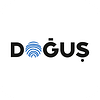Agile, değişimi yönetmenin, pazara çıkış süresini azaltmanın, atıkları ortadan kaldırmanın ve müşterileri cezbedip elde tutmanın bir yolu olarak hem Birleşik Krallık’taki hem de tüm dünyadaki iş liderlerinin dikkatini çekmiştir. Burada önemli olan soru Agile (Çevik) Proje Yönetimi’nin ne olduğu ve klasik danışmanlıktan nasıl farklılık gösterdiğidir? Rollere, yeteneklere ve yetkinliklere nasıl ihtiyaç duyulmaktadır?
Bu iki günlük temel sertifika eğitimi, projeler ve ürün ve yazılım geliştirmesi çalışmalarında Agile uygulamalarının kullanılmasıyla ilgilidir.
Eğitim, birçok farklı Agile metodolojisini kapsamakta olup katılımcının Agile uygulamalarının temel kavramları, Agile değerleri ve ilkeleri konusunda bilgi sahibi olmasını sağlayacak şekilde tasarlanmıştır. Ancak katılımcıları belirli bir Agile yaklaşımını hayata geçirmeye hazırlamayı amaçlamamaktadır.
Sınav
Kitap kullanılmayan sınava eğitim sırasında girilmekte olup bir saatten daha fazla sürmekte ve 40 çoktan seçmeli sorudan oluşmaktadır. Katılımcıların sınavda başarılı olabilmeleri için %65 (40 üzerinden 26 doğru) başarı puanı elde etmeleri gerekir.
Bu eğitime, Scrum, XP (Aşırı programlama), DSDM Atern, Kanban, Yalın Yazılım Geliştirme ve Yalın Başlangıç gibi Agile Ekiplerine yönelik Yöntemler ve Yaklaşımlar dahildir.
























